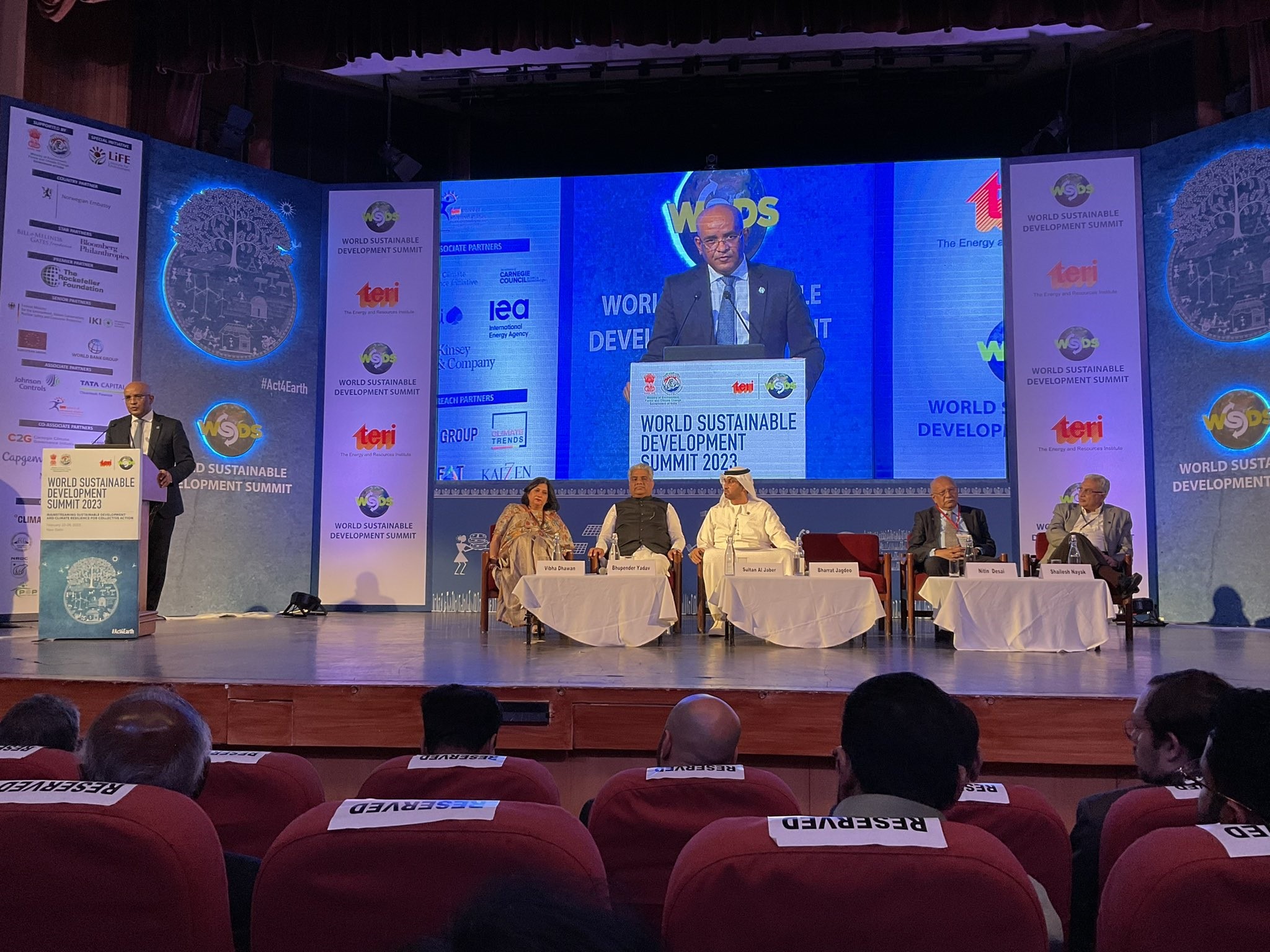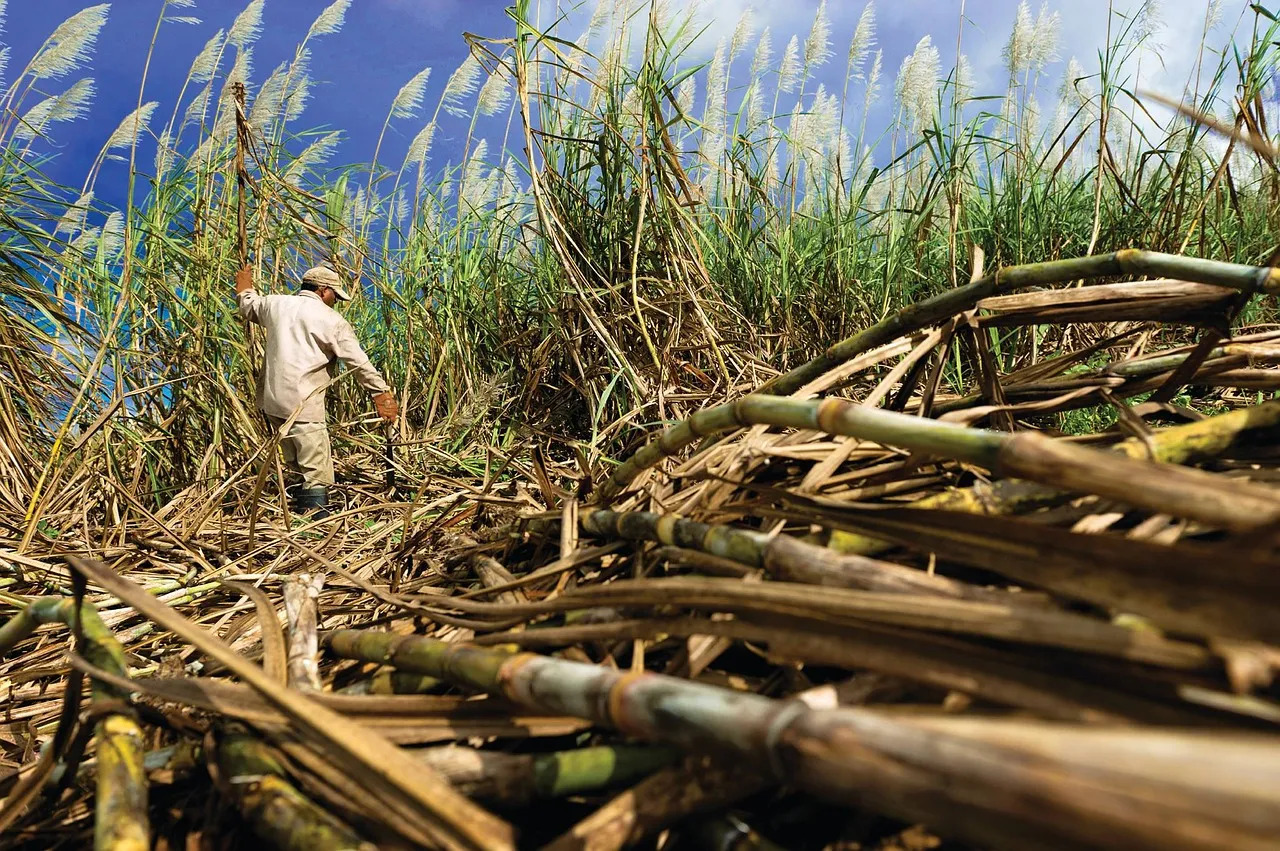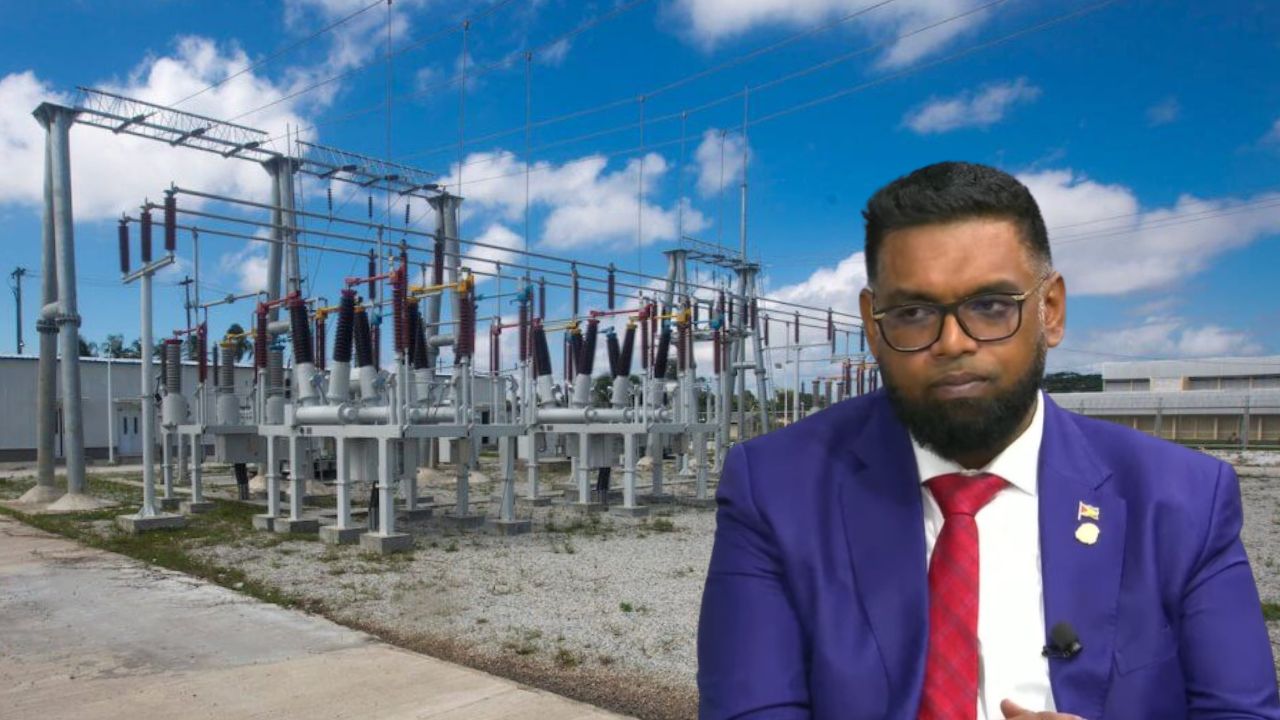
Vice President of Guyana, Dr. Bharrat Jagdeo, used his brief presentation at the opening of the World Sustainable Development Summit (WSDS) in New Delhi on Wednesday to further advocate for incentives for tropical and other forest-rich countries.
Dr. Jagdeo, who is also a former two-term President of Guyana, architect of the country’s Low Carbon Development Strategy (LCDS), and Champion of the Earth, said it is time the world strikes a balance between the search for solutions and the need to exploit forest resources for personal livelihood and national development.
“Clearly, the case is made that forest is important for climate solutions,” he told the gathering.
He emphasised, however, that even with this known fact, the forest is not reflected in global discussions in a manner that truly highlights the advantages of preservation and the need for incentives to be given to those countries that have forests to preserve.
“We can’t preserve (forests) by philanthropy…we can’t say end deforestation by 2030 but offer no incentives,” Dr. Jagdeo highlighted.
He said as long as people and countries continue to rely on forests for betterment then the developed world must find ways to out-compete alternate use of the forest.
In earnest, the Guyanese Vice President believes the best way to do so is by creating a system that offers incentives for the preservation of forests.
He highlighted Guyana’s successes in this regard. Some 86 per cent of Guyana’s landmass is covered in forest and the country has one of the lowest deforestation rates in the world achieved over the last decade after Guyana became one of the very first developing countries to embark on a low carbon development pathway.
Jagdeo recalled that even in 2009, when Guyana tried to get forest placed on the global agenda as part of formal compliance markets, there was resistance from some international organisations.
“They believed that by doing that, developed countries would buy cheap credits and avoid ambitions of cutting emissions,” he said.
But over a decade later, Guyana has managed to sell its carbon credits and rake in millions of US dollars which is being spent on adaptation and mitigation efforts and the development of indigenous communities.
And after 10 years of robust monitoring, reporting and control systems, Guyana recently sold 30 per cent of its carbon credits to HESS Corporation for US$700 million.
With US$150M already disbursed, 15 per cent will go to indigenous 240 communities with populations ranging from 50 persons all the way up to 3, 500 persons.
The remaining 85 per cent will be utilised to address adaptation issues, particularly since Guyana is below sea level and water management has become a big issue.
But notwithstanding these strides, Dr Jagdeo said the developed world is not doing enough to incentivize its pledges and commitments.
He recalled the fund set up at COP-26 but up until now, no money has been allocated.
“They (developing countries) have huge adaptation needs but no money for it. For them, if they don’t adapt, there is no talk of sustainability, so forget MDGs, forget SDGs; sustainability for them means adaptation,” he added.
The Vice President maintained that the search for solutions must be perused at all costs.
He said the world’s forest put together would be the third largest country in the world after China and the USA.
This proves that clearly, it is important to find solutions to address the nature- base problem of deforestation, Dr Jagdeo contended.
Currently, the world’s forest can remove 10 gigatons of CO2 equivalent every year and is 25 per cent of the solution to keep the world on the 1.5 trajectory by 2030.
The World Sustainable Development Summit (WSDS) is the 22nd edition of the annual flagship event of The Energy and Resources Institute (TERI).
Being held from February 22-24 in New Delhi, the deliberations will focus on the umbrella theme: Mainstreaming Sustainable Development and Climate Resilience for Collective Action.











